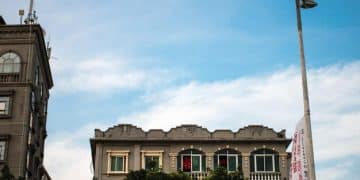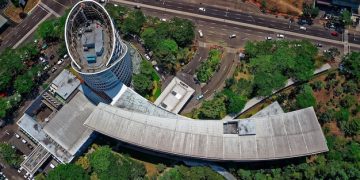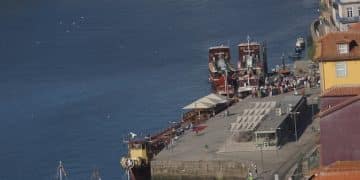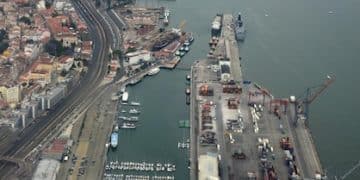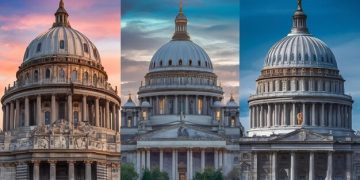Peru’s Political Stability: A 6-Month Outlook for US Businesses

Peru’s political stability over the next six months is crucial for US businesses, impacting investment decisions, trade relations, and overall economic cooperation, requiring a careful assessment of current political trends.
For US businesses with interests or investments in Peru, understanding the nation’s political climate is paramount. This article delves into **Peru’s political stability: A 6-Month Outlook for US Businesses**, providing insights to navigate the evolving landscape.
Navigating Peru’s Political Landscape: An Overview
Understanding Peru’s political landscape is essential for any US business operating or considering investment in the country. The next six months are likely to be crucial, marked by ongoing political transitions and policy shifts.
This overview explores the key players, institutions, and potential disruptors that influence Peru’s political direction, providing the context needed to assess its stability.
Key Political Players in Peru
Peru’s political arena is populated by various actors, each with their own agendas and influence. Understanding these key players is vital for gauging the country’s political stability.
- President and Executive Branch: The President of Peru leads the executive branch, responsible for implementing laws and policies.
- Congress of the Republic: The unicameral Congress holds legislative power, enacting laws and overseeing the executive branch.
- Political Parties: Several political parties compete for influence, often forming alliances to achieve their goals.
- Business and Civil Society Groups: Influential business groups and civil society organizations play a role in shaping public opinion and policy decisions.
By understanding these players and their influence, US businesses can better anticipate potential shifts and challenges to Peru’s political stability.

In conclusion, Peru’s political landscape is intricate and shaped by diverse actors and institutions. Comprehending these elements is critical for predicting the possible consequences for US enterprises operating in the country.
Economic Policies and US Business Interests
Economic policies are central to Peru’s political stability, directly influencing the attractiveness of the country for US businesses. Policy decisions regarding trade, investment, and regulation can significantly impact profitability and risk.
This section examines the major economic policies currently in play and analyzes their potential effects on US business interests in Peru.
Trade Relations and Agreements
Peru’s trade relations and agreements, especially those with the US, profoundly affect the economic environment for US businesses. These agreements dictate tariff rates, trade barriers, and investment protections.
- US-Peru Trade Promotion Agreement: Key aspects include tariff reductions, intellectual property protection, and investment regulations.
- Impact of Global Trade Policies: Global trade tensions and policies can ripple through Peru’s economy, affecting exports and imports.
- Opportunities and Challenges: The trade landscape presents both opportunities for increased market access and challenges from competition.
US businesses need to stay abreast of these trade policies to maximize opportunities and mitigate risks.
Ultimately, economic policies are instrumental in determining Peru’s political stability and its appeal to US businesses. Policymakers should prioritize policies that promote economic growth, investment, and trade.
Potential Scenarios for Political Instability
Identifying potential scenarios for political instability is a proactive approach to risk management for US businesses in Peru. Understanding the pathways to instability allows for better preparation and mitigation strategies.
This section outlines several potential scenarios that could lead to instability, providing a framework for assessing risk and planning accordingly.
Corruption Scandals and Their Implications
Corruption scandals have historically been a significant source of political instability in Peru. These scandals can erode public trust, trigger protests, and lead to government reshuffles.
- Erosion of Public Trust: Corruption undermines faith in political institutions and leaders.
- Protests and Social Unrest: Scandals often lead to public demonstrations and social unrest.
- Impact on Investment Climate: Corruption can deter foreign investment and increase the cost of doing business.
US businesses should closely monitor corruption-related news and understand its potential impact on their operations.

To sum up, identifying possible political instability scenarios is crucial for American enterprises in Peru. It enables them to plan ahead and cope with any issues that may occur, protecting their commercial interests.
Social Unrest and its Impact on Businesses
Social unrest can significantly affect businesses, leading to disruptions, property damage, and even changes in government policies. It is crucial to consider factors that trigger such unrest to better understand the potential implications.
This section explains the impact social unrest can have on businesses operating in Peru and offers insight on managing related risks.
Factors Contributing to Social Unrest
Social unrest can be caused by a variety of factors, including economic inequality, lack of access to resources, and political grievances. Understanding these root causes is vital for predicting and addressing unrest.
For example, high levels of economic inequality may lead to dissatisfaction among lower-income groups, potentially leading to protests and strikes. Furthermore, unresolved political grievances can ignite social movements seeking change.
Therefore, companies operating in Peru need to consider these factors in their risk management strategies in order to minimize the negative impact of social unrest.
In conclusion, understanding the influence of social disturbance on firms operating in Peru and its underlying causes is vital for efficient risk management and long-term company growth. This strategy protects corporate interests by allowing stakeholders to minimize hazards and maximize opportunities even amid uncertainty.
Legal and Regulatory Changes Affecting US Businesses
Changes in legal and regulatory environments can significantly impact US businesses operating in Peru. These changes can affect various aspects, including investment, taxation, and labor practices.
This section explains how such changes can impact US businesses in Peru and recommends steps on staying informed and compliant with evolving regulations.
Recent Regulatory Reforms in Peru
Peru has implemented several regulatory reforms in recent years, which directly affect US businesses.
For example, there have been changes made to the tax code that might change how US firms account for and pay taxes in Peru. Furthermore, new labor legislation might affect employers’ procedures for employing and managing employees.
US businesses must understand these changes in order to stay competitive and in compliance with local laws.
To summarize, legal and regulatory changes are critical external factors that have a big influence on the operations of American enterprises in the Peruvian market. Businesses can protect themselves by proactively monitoring these alterations and adapting their business tactics accordingly.
Strategies for US Businesses to Mitigate Political Risk
Mitigating political risk is crucial for US businesses operating in Peru. Implementing proactive strategies can safeguard investments, ensure continuity, and promote sustainable growth.
This section outlines effective strategies that US businesses can employ to minimize the impact of political instability and navigate the complexities of the Peruvian landscape.
Developing Strong Relationships with Stakeholders
Building strong relationships with key stakeholders, including government officials, local communities, and business partners, is essential for mitigating political risk.
- Engage with Government: Maintain open and transparent communication with government authorities to understand policy changes.
- Support Local Communities: Invest in community development projects to build goodwill and social capital.
- Partner with Local Businesses: Collaborate with local businesses to gain insights and navigate the business environment effectively.
By fostering these relationships, US businesses can create a stable and supportive operating environment, reducing their vulnerability to political shocks.
In conclusion, proactive strategies are necessary for US enterprises seeking to reduce political risks in Peru. These tactics enable stakeholders to safeguard their investments, ensure continuity, and encourage long-term growth by promoting positive relationships and openness.
| Key Point | Brief Description |
|---|---|
| Key Players | Understanding the roles of political figures such as the President and Congress. |
| Economic Policies | Evaluation of trade agreements and their influence on US business interests. |
| Risk Scenarios | Identifying potential causes of instability, such as corruption and social unrest. |
| Legal Changes | Compliance with changes in legal and regulatory conditions affecting US businesses. |
FAQ Section
▼
Political instability, corruption, and changes in trade regulations can deter US investments due to increased uncertainty and risk. Conversely, stable governance and favorable policies attract more investment.
▼
Mining, agriculture, tourism, and technology sectors have shown increasing interest from US investors, particularly when supported by clear and predictable regulatory frameworks and stable political conditions.
▼
To manage risks, US businesses should engage with local communities, support social development initiatives, and establish contingency plans that address security concerns and potential disruptions due to unrest.
▼
Key legal considerations include compliance with Peruvian labor laws, tax regulations, environmental standards, and regulations related to foreign investment. Staying informed is also essential for compliance.
▼
Trade relations with the US significantly influence Peru’s economy, particularly through exports, imports, and the overall balance of trade. Favorable trade terms can boost economic activity.
Conclusion
In conclusion, navigating Peru’s political landscape requires US businesses to stay informed, proactive, and adaptable. By understanding the key players, assessing potential risks, and implementing mitigation strategies, businesses can successfully manage the challenges and capitalize on the opportunities that Peru offers.
